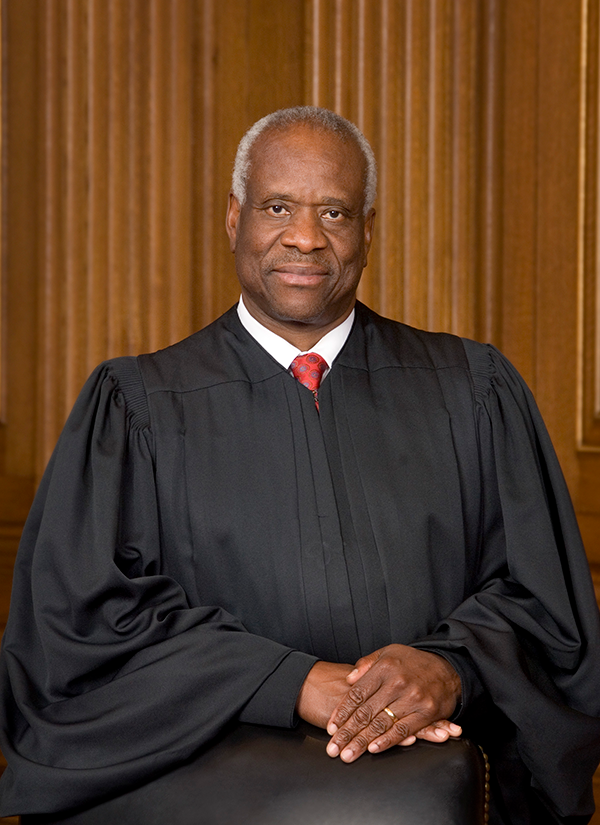Justice Thomas recuses himself for first time in election-related case; ex-law prof wanted email ruling vacated

Justice Clarence Thomas.
Justice Clarence Thomas recused himself on Monday when the U.S. Supreme Court declined to hear the case of former Chapman University law professor John Eastman, who wanted to vacate a decision allowing release of his emails to a House committee investigating the Jan. 6, 2021, Capitol attack.
It was the first time that Thomas recused himself in a case related to the 2020 election and the Capitol riot, report Bloomberg Law, the New York Times and NBC News. Thomas’ wife, Ginni, had backed efforts to investigate and overturn the election.
Eastman was a former Thomas law clerk who supported former President Donald Trump’s efforts to overturn the election. Eastman wanted the U.S. Supreme Court to vacate a federal judge’s decision that eight of Chapman’s otherwise-privileged emails could be disclosed to the House committee investigating the Capitol riot.
In those emails, Eastman and another lawyer had discussed their opinion that Thomas was their best bet for obtaining a stay that would hold up the vote count in Georgia and delay a congressional vote to certify the 2020 election results.
The federal judge who allowed disclosure of Eastman’s emails had reasoned they could be released under a crime-fraud exception to the rule barring disclosure of attorney work-product or confidential attorney-client communications.
Eastman’s cert petition says the judge’s decision “has cast aspersions” not only on Eastman, but also on his former client Trump.
Eastman says his appeal became moot because of the actions of the congressional committee, which distributed the emails to committee members while his application for an emergency stay was pending before a federal appeals court. Because the defendant in the case was responsible for releasing the emails and mooting the appeal, Eastman says, he should be entitled to an order vacating the district court decision.
Politico obtained Eastman’s emails when a lawyer failed to deactivate a Dropbox link that was created to share documents with the House committee.
Eastman is among eight lawyers accused of violating Georgia racketeering law through their efforts to overturn the 2020 election. He is also facing ethics charges in California.


